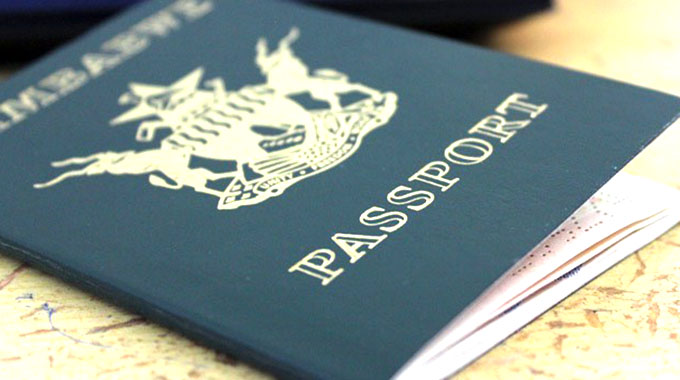By Lulu Brenda Harris and Khanyile Mlotshwa
The government of South Africa has decided it will no longer be extending Zimbabwean special permits and has urged holders of the current permits to move to other permits or leave the country by the end of next year.
“Following its deliberations, government decided to no longer issue extensions to the Zimbabweans’ exemption and special dispensations,” said the Minister in the Presidency, Mondli Gungubele, while briefing the media on the outcomes of the Cabinet meeting on Thursday morning.
“However, cabinet decided on a 12 months grace period at the expiry of the current Zimbabwe Exemption Permits. During this period, holders of this permit should apply to other permits appropriate to their particular status or situation. At the expiry of this 12 months period those who are not successful will have to depart the republic or be deported.”
Minister Ngungubele said the decision was arrived at after serious consideration and realisation that there was a lot of fake news on the matter.
“The first Zimbabwean dispensation permits started in 2009 and was called the Dispensation of Zimbabwean permits,” he said.
“It provided for the documentation of qualifying Zimbabweans for a five-year period. In 2014, the dispensation was extended by three years and referred to as the Zimbabwe Special Permits (ZSP). The current Zimbabwe Exemption Permit was initiated in 2017 and comes to an end on the 31st of December.”
The minister’s clarification comes in the back of a court case by some Zimbabweans seeking to compel the South African government to grant them a permanent residency status following years of special and exemption permits.
The minister also said the cabinet was worried about increasing xenophobic sentiments in the country.
“Cabinet noted the rising xenophobic sentiments in some parts of the country against foreign nationals,” Ngungubele said.
“The onslaught of Covid-19 has affected all people in South Africa and the negative sentiments being perpetuated by a handful of people do not reflect the true state of relations between foreigners, living and working within our communities, and citizens.
Some Zimbabweans feel the government gave in to pressure from right-wing elements who include the #PutSouthAfricaFirst movement, who Wednesday picketed in Gauteng against the Zimbabwean permits.
Although there is no official figure of how many Zimbabweans are resident in South Africa, reports are that there are about 300 000 ZEP holders allowing them to live and work in the neighbouring country.
In an interview with CITE, leader of the African Diaspora Global Network, Dr Vusumuzi Sibanda said the decision by the South African had been expected.
“There has been a lot of talks and it was expected in a way,” he said.
“But obviously this is not the end of the road. There is a court challenge which means more is likely to happen in that front. For example, efforts to get this rectified in the courts are likely to be more pronounced.”
Dr Sibanda noted perhaps the decision could also be a “strategic plan” to please South African right-wingers.
“The ANC might be responding to the right-wing that is getting momentum,” he said.
“We have seen the right-wing changing the mindset of politicians and there is a likelihood that the courts may force the government and at that stage politicians will say it’s not our fault but it was a court decision so this is a matter playing in the main arena and behind doors.”
Zimbabwe Community in South Africa Chairperson, Nicholas Ngqabutho Mabhena, said his organisation welcomes the decision by the South African cabinet.
“We respect this decision on the basis that it is a sovereign decision made by a sovereign government informed by its own prevailing conditions,” he said.
“We are therefore not contesting the decision.”
Mabhena, however, said his organisation will, however, engage the South African
government to understand the reasons behind the decision.
“In the next few weeks and few days, we will be engaging the South African government to understand what informed this decision,” he said.
“Once we have understood what informed this decision, we will then seek to work around the decision and also consult the South African CSOs (Civil Society Organisations), our partners that we have been working with over the years on the documentation of Zimbabweans in South Africa.”
Mabhena said as the Zimbabwe Community and Africa Diaspora Forum, called upon Zimbabweans to desist from negotiating through social media, as that created “a lot of problems.
“A journalist in Harare claimed to have spoken to his sources in the government in South Africa that they will renew the permits for five years and this created a lot of problems. The Home Affairs Department had to issue a statement on November 19 burning such allegations.”

